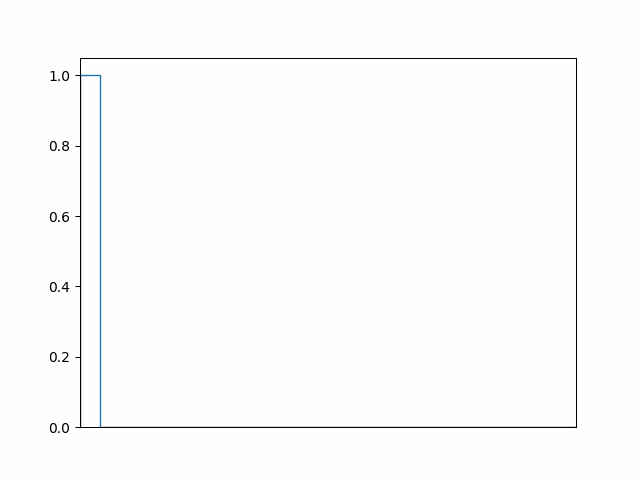The Q language is used to specify calculations for discrete probability distributions and execute them from Python. QPLEX uses such calculations for modeling and analysis of a variety of stochastic systems.
This animation is constructed from probability distributions calculated with Q code:
It represents the distributions of the number of entities in a system, over time, for a multiserver queueing system with arrival distributions that fluctuate heavily.
The QDK contains a Q-language compiler and documentation. The compiler produces a C++ extension module for Python from one or more Q source files. We used the QDK to create the QPLEX Python Package, which incorporates several standard models. You can use it to create your own.
The Q language enables you to write what the QPLEX book calls distributional programs. A distributional program resembles a stochastic simulation, but its output is deterministic and represents the probability distribution of a sample produced by this simulation.
Here is an example of Q code:
public Pmf truncationMove() {
x ~ binomial(2, 0.2);
int y = min(x, 1);
return y;
}
This function produces a distribution that assigns probability 0.64 to the value 0 and probability 0.36 to the value 1.
Building a C++ extension module from Q source using the QDK requires Java (JRE 1.8 or later), a C++ compiler, Python 3, and the Python package setuptools.
Building the QDK itself from source additionally requires Java (JDK 1.8 or later), Ant, a TeX distribution (e.g., TeX Live, MiKTeX, or MacTeX), and the Python package sphinx.
